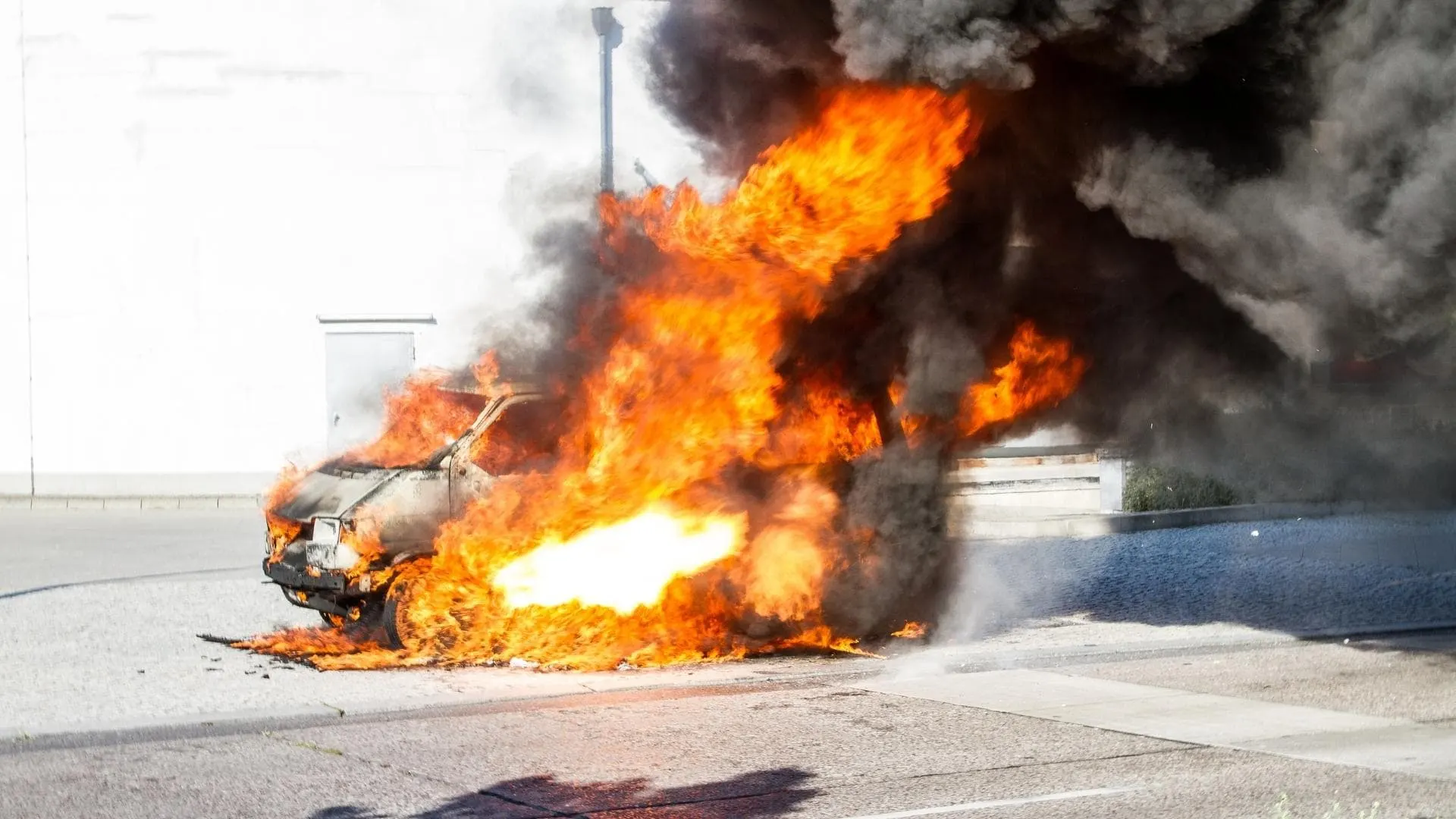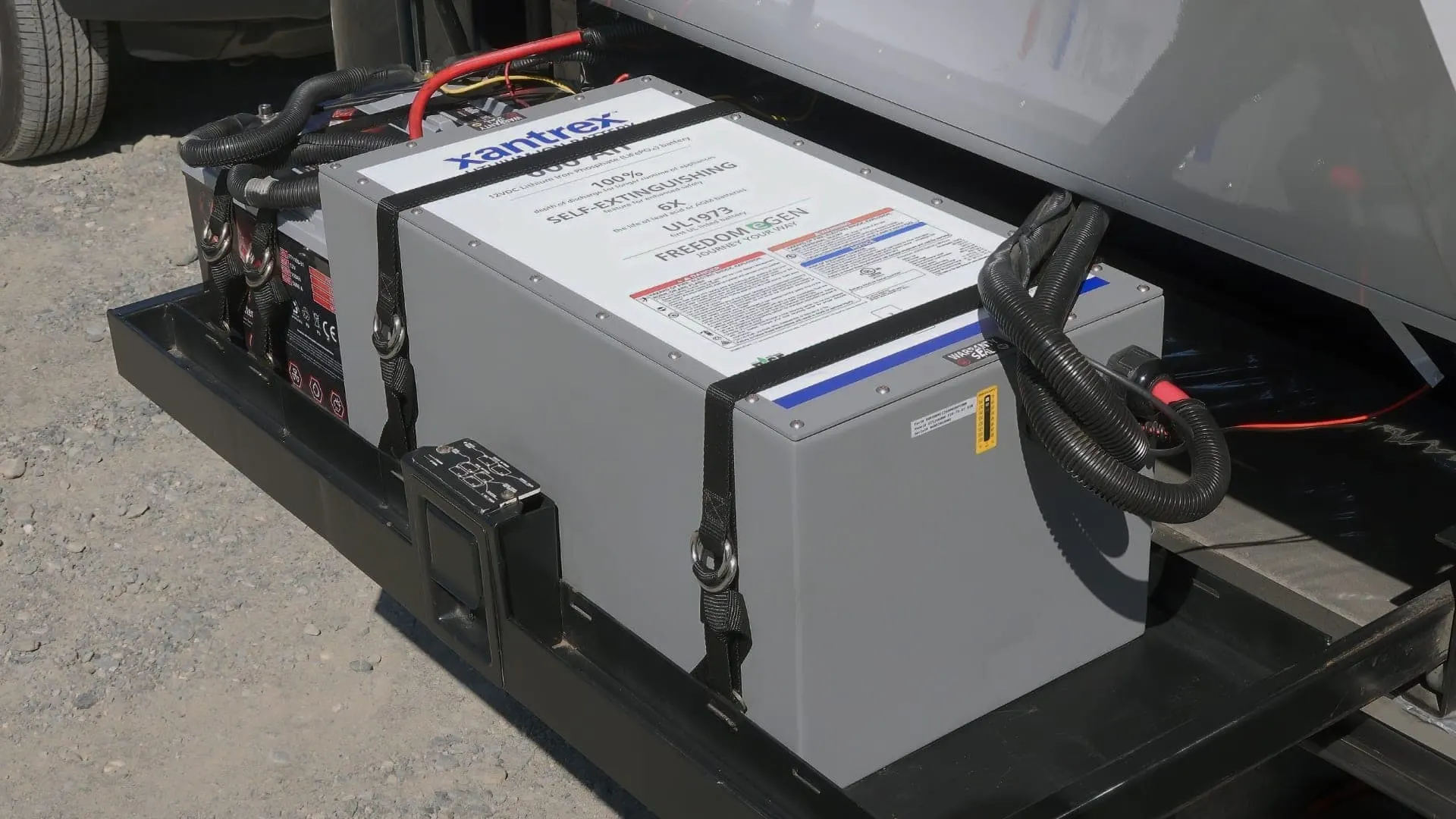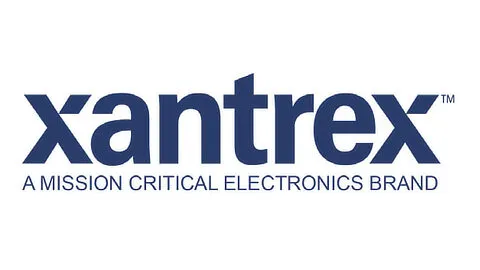There’s a lot of talk about lithium RV batteries, and with good reason. RV lithium batteries are rechargeable 12-volt batteries that have become a popular alternative to lead-acid batteries, particularly for RVers who spend a lot of time off the grid and/or who use solar power.
RV lithium batteries are based on a newer, more efficient lithium-ion technology known as lithium iron phosphate (or LiFePO4 for short). And as we noted in our post, “Are RV Lithium Batteries Worth It?”, they’ve earned their popularity for many reasons.
Not only do lithium RV batteries have a significantly longer lifespan than lead-acid batteries do, but they’re also lighter. And, because they’re more efficient, they charge faster.
But there are several high-pitched misconceptions floating around about lithium RV batteries, and today’s post hopes to dispel the three most common of these.
Knowledge is power (literally and figuratively in this case), so let’s get right to it!
What Are the 3 Most Common Misconceptions About Lithium RV Batteries?
Lithium Batteries Are Dangerous

Many people hold the misconception that lithium batteries are dangerous. While there may have been a time when that was true, the technology of lithium batteries has changed dramatically. With those changes, increased safety measures have been developed and implemented, making today’s lithium batteries very safe.
Prior to several technological advancements, lithium batteries used in some electronics could overheat and would sometimes even catch on fire. But technology has advanced substantially since that time, and today RV lithium batteries are made with lithium iron phosphate (LiFePO4) technology which uses non-combustible lithium chemistry. They’re different from the other “lithium-ion” battery formulations used for cell phones, laptops, and other portable devices… and are much safer for use on RVs.
Even so, lithium RV batteries can be prone to a condition called thermal runaway which occurs when the interior temperature of the battery rises so high that it causes a chemical reaction leading to excessive heat that can lead to a dangerous condition resulting in an explosion. For more on this topic, see our post “What Is Thermal Runaway?”
However, this is precisely why most lithium RV batteries have a battery management system (BMS). A battery management system ensures that the battery operates safely by monitoring and managing the advanced features of the battery. For more information on a BMS and how it works, please see our post “What Is the Function of a Battery Management System?”
So, technology has advanced to the degree that the concern that lithium batteries are dangerous is no longer valid.
Lithium Batteries Can’t Be Used in Cold Weather
Misconception #2 is that lithium RV batteries can’t be used in cold weather. Again, this isn’t entirely true. In fact, some brands of lithium RV batteries allow you to continue to draw power to as low as -4℉.

The issue of cold adversely affecting lithium RV batteries has been addressed in a couple of different ways. There are now lithium RV batteries that can be used in temperatures well below freezing.
But the bigger issue is that, when the temperature of a lithium battery drops to or below freezing, it can’t be recharged without permanently damaging it. That’s because, at those temperatures, supplying power to recharge the battery can cause the lithium to form crystals, which pierce the membranes that form the cells of the battery, destroying it.
That recharging issue is addressed in two different ways.
First, with virtually all lithium RV batteries that we’re aware of, the BMS (Battery Management System) built into (or installed along with) the battery(ies) will monitor the internal temperature, ensuring that it does not allow any charging current to flow into the battery if it has reached a dangerous temperature. This will protect the battery from damage, but if that was all you were relying on, could mean that your battery won’t recharge when you need it to.
The second way this issue is dealt with is that there are now lithium batteries on the market that have built-in heating elements. When the BMS detects that the battery’s internal temperature has dropped low enough, it can trigger the heating element to come on, allowing the battery to be charged well below freezing. Two of our favorite lithium RV batteries that include heating are the 100Ah Battle Born and 125Ah Xantrex, both of which are sized to be direct replacements for typical RV batteries.
We've got long-term experience with Xantrex products (our first motorhome came with a Xantrex Freedom 458 Inverter/Charger), and have always had a good experience with them. In our Mountain Aire...Show More
We've got long-term experience with Xantrex products (our first motorhome came with a Xantrex Freedom 458 Inverter/Charger), and have always had a good experience with them. In our Mountain Aire we've enjoyed many years of boondocking freedom thanks to our Xantrex lithium battery, solar panels & charge controllers, and pure-sine inverter/charger.
Now, you can save 5% by ordering direct from Xantrex's online store when you use the Promo Code "RVGEEKS"
Watch our video about installing our Xantrex lithium battery
Choose from several Xantrex lithium batteries, accessories, and more (to come!). Shipping to both the US and Canada available!
Show Less
This is our custom lithium battery from Xantrex – the Freedom eGen. But Xantrex also makes 12V lithium drop-in batteries.
Lastly, even without these protective mechanisms, lithium batteries have another advantage. Unlike flooded lead-acid batteries (which must be installed in vented compartments due to the flammable gas they produce during their charge/recharge cycles), lithium RV batteries don’t outgas at all. As a result, they can be installed inside your RV and, thus, be better insulated from outside temperatures causing a problem.
Lithium Batteries Are More Expensive
This is true, initially. Lithium batteries do cost more to buy. However, they also last significantly longer than lead-acid batteries, so they’re often less expensive in the long run. In fact, a quality lithium RV battery can last up to ten times longer than a lead-acid RV battery.
So, over the duration of the lifetime of a lithium battery, you’d be likely to replace a lead-acid battery several times. That adds up (and can be a real pain in the neck).
Plus, because lithium batteries for RVs can be drained/discharged much lower than flooded lead-acid batteries can be (lead-acid batteries shouldn’t be drained more than 50% of their capacity before their lifespan is significantly reduced), you can typically install half as many of them.
For example, if you require 200 Ah of battery capacity, you can achieve that with two 100 Ah lithium batteries that can be drained all the way down to 0% State of Charge (SOC). With comparable flooded lead-acid batteries, you’d need to install a total of 4 x 100Ah (for a total of 400 Ah), since you can only use 50% of their capacity (400Ah x 0.5 = 200Ah of usable capacity).
Back in 2018, we created a YouTube video about our Lithium/AGM Battery & Electrical Upgrade project, in which we shared our experiences over the first 3 1/2 months of using our new systems. Spoiler: the benefits were, and have continued to be, tangible and significant.
And, if you really want a deep dive into the pros & cons of the various battery types, we gave a (long!) talk on the subject at the 2019 Xscapers Annual Bash… comparing and contrasting the benefits and limitations of standard flooded lead-acid batteries, AGM (Absorbed Glass Matt) batteries, and lithium. Grab a drink, sit back, and enjoy the video:
Have You Made the Switch to Lithium Batteries for Your RV?
If you’ve made the switch to lithium batteries for your RV, feel free to tell us about your experience. Drop us a comment and share your thoughts. Or, if you’re against it, let us know that, too! We’re curious to hear what you have to say!
Geek Out with Us Every Week
Join our newsletter to learn about all things RV-related. Every week we offer free tips, tricks, product reviews, and more to our online community of RVers. So, whether this is your first time on the road or you’re a seasoned expert, we’d love for you to geek out with us!




Debi
Saturday 29th of July 2023
I am a full time RVer in a RV Resort, hooked up to power full time. I just purchased a 2023 Grand Designs Reflection 5th Wheel. I have not dealt with Lithium Solar Batteries before. The dealership told me the Lithium battery would not function in winter, that I would have to convert to Deep Cell 12 volt Batteries. If I am hooked up to electricity full time and living in the RV, can the Lithium battery function if I keep the compartment, in which it sits in, above 32 degrees? I have heard of battery heating pads to place on them as well?
Charlrs
Thursday 22nd of June 2023
We have an RV (Roadtrek) equipped with Lithium batteries, and we now, after less than three years need to replace them. $5000 ! I can’t understudy they and you are claiming they last longer than other options.
TheRVgeeks
Friday 23rd of June 2023
Hey Charles. So sorry to hear about your experience. Do you know what brand of batteries they are? And/or if they were factory-installed or aftermarket? Unfortunately, as with all things, not all lithium batteries are created equal... and/or it's possible that the charging system wasn't optimized for use with lithium and resulted in them losing life. When good lithium batteries are installed properly and maintained properly, they'll easily last 10 or more years.
Bill
Sunday 21st of May 2023
You shouldn't be too dismissive of the risk of fire from lithium ion batteries. In Augusta Maine a pickup exploded following a fire caused by a defective cordless drill battery and the NYC Fire Marshall attributes 70 fires this year to lithium ion batteries. Although relatively rare incidents do occur.
TheRVgeeks
Monday 22nd of May 2023
Hey Bill... we aren't being dismissive of the dangers of Lithion ION batteries. But, keep in mind that we're talking about Lithium IRON Phosphate formulation. The batteries in cordless drills, laptops, and other compact devices that need super-dense and lightweight power ARE riskier. But the Lithium IRON Phosphate (LiFePO4) batteries for RVs are safe and are NOT prone to causing fires.
We aren't aware of any incidents that have been caused by this formulation of lithium batteries.
Bob Harker
Sunday 21st of May 2023
Upgraded to a 200 Ah Renogy LifePo4 and 2000 W inverter and would not go back. Unfortunately, our local Camping World (Churchville, NY) installed it. They had our rig for over 6 months, and it still is not right after taking it back 3 times! Microwave was never wired in. We're going full time in a couple of months and will have to get by until we get out west and find somebody that knows what they're doing. NOT a Camping World!
TheRVgeeks
Monday 22nd of May 2023
Oh boy, Bob. Sorry to hear that you had such a bad experience with Camping World (though we wish we could say it was a one-off and that there weren't TONS of other, similar CW stories).
Jeff P.
Sunday 14th of May 2023
Other than obvious difference in space savings... does it make more/less sense to buy a single 270 Ah BB battery vs. buying 3 100Ah batteries? Cost is quite similar.
TheRVgeeks
Tuesday 16th of May 2023
Not really, Jeff. Other than the extra 30Ah you'd get from 3x100Ah -vs- 1x270Ah you'll have a bit less wiring with the single battery (no inter-battery connections required). The only other thing could be a redundancy factor... with the 3 x 100Ah batteries you'd have a fallback situation if one of them ever died (would require some re-wiring), so you wouldn't be dead in the water. But, on the other hand, with 3 batteries, you'd have 3x more opportunities for one to fail! LOL!